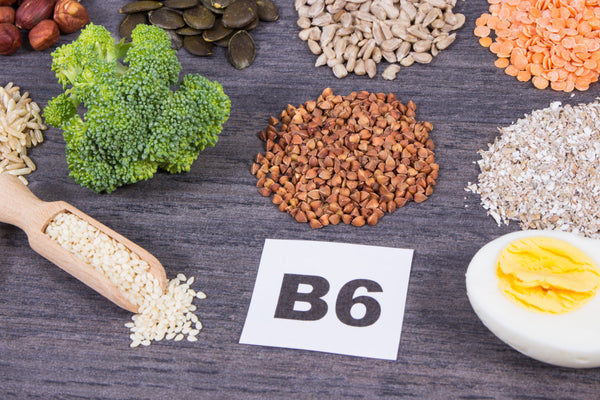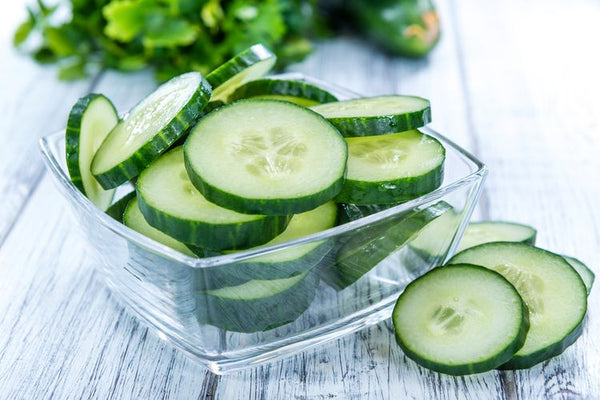
The Best Vitamins and Supplements for Vegetarians

Vegetarian diets tend to include a variety of important vitamins, minerals, and antioxidants, especially fiber, magnesium, potassium, and vitamin C.
This diet may be a relatively low-calorie diet compared to a diet that includes more processed foods. Therefore, a vegetarian diet is often associated with healthy weight management.
Keep in mind that any diet that excludes food groups - such as meat, dairy, and fish - risks contributing to a low intake of certain nutrients.
Supplements can be a useful addition to a vegetarian diet because they help ensure you meet certain nutritional needs, which are important for supporting healthy energy levels, a positive mindset, a healthy immune system, and so on.
What are the best vitamin supplements for vegetarians? Some of the most important vegetarian supplements include B12, calcium, zinc and iron - as these essential nutrients are most abundant in foods of animal origin.
Vegetarians vs. Vegan
The terms vegetarian diet and vegan diet may be confusing for some people because it is not always clear what the difference is between the two.
Although both are considered “plant-based diets,” the vegan diet is a bit more restrictive overall — because the vegan diet excludes all animal products including meat, fish, poultry, eggs, dairy products, and even honey.
Vegetarian diets on the other hand usually don't include meat, poultry or fish/seafood, but may include dairy and eggs (there are different names to describe each type of vegetarian diet, such as the lacto-ovo diet which includes more variety).
Overall, proper vegetarian eating habits vary widely, so the term actually covers a wide spectrum of diets.
Since both are forms of the plant-based diet, ideally anyone following this meal plan should focus on filling up healthy plant-based foods such as fruits, vegetables, nuts, seeds, nuts and seeds.
This is the best way to make sure you're meeting your needs for a variety of nutrients, although vegetarian supplements can also help.
Benefits of a Vegetarian Diet
Below are some of the benefits of following a vegetarian or vegan diet, assuming there is an emphasis on eating whole, unprocessed foods:
Can Help Maintain a Healthy Weight
a based diet is believed to help people maintain a lower body mass index and can help support an overall healthy weight.
A high fiber intake from plant-based foods such as vegetables, fruits, whole grains and legumes can also help keep you feeling full between meals, which is a smart strategy for controlling calorie intake without being deprived.
Supports Healthy Metabolism and Healthy Blood Sugar Levels
Dietary nutrition - a diet high in beneficial foods such as vegetables, fruits, herbs and spices can help promote healthy blood sugar levels within the normal range.
Helps Support Cardiovascular Health
Plant-based diets are associated with healthy levels of triglycerides, total cholesterol and LDL (bad) cholesterol, plus they can help promote healthy blood pressure levels.
What Nutrients May Be Missing In A Vegetarian Diet?
If you're following a plant-based diet, it's a good idea to ask yourself, "What vitamins should I take if I don't eat meat?"
Taking vegetarian supplements can help ensure that you are getting the nutrients you need to support your health, even if you choose to avoid foods such as meat, fish, eggs, and poultry.
When you avoid most or all animal products, there is research showing that people may be more prone to deficiencies in the following nutrients:
- Certain proteins/amino acids
- Iron
- Zinc
- Vitamin B12
- Calcium
- Selenium
- Iodine
- omega-3 fatty acids
Although supplements should not be used to replace a healthy diet, some of the best supplements for vegetarians can complement a complete diet rich in nutritious plant foods.
Best Minerals and Vitamins for Vegetarians
Certain vitamins and minerals are especially beneficial for those who follow a vegetarian diet. Some of the best vitamin supplements for vegetarians include:
Vitamin B12
Among the best supplements for vegetarians is vitamin B12, which is often recommended for those who avoid animal products as it is not found in plant foods.
B12 is important for many functions including promoting the normal production of red blood cells, cellular metabolism and DNA synthesis, as well as supporting healthy cognitive function.
How do vegetarians get B12? It is best to take a vegan B12 supplement (such as in the form of methylcobalamin), which is usually made through bacterial fermentation. B12 can be taken in the form of capsules, caplets or in other forms.
Vitamin D
The human body gets vitamin D when the skin is exposed to sunlight. However, since many people don't spend enough time outdoors in the sun all year round, this focus is a growing issue and especially there are no specific foods that contain a lot of Vitamin D. Vitamin D
supplements can help increase levels among those who do spend most of the day. spend most of their time indoors and avoid foods such as milk, milk, and fish.
Calcium
Calcium helps support bone and heart health. However, for people who avoid dairy products and regularly consume other sources of calcium such as leafy green vegetables and nuts/seeds, it may be difficult to get enough.
You can find calcium as a calcium supplement, or get it from as part of a multivitamin. For example such as
Iron
Although certain forms of iron are found in some plant foods such as green leafy vegetables and seaweed, the best sources of highly absorbable iron are foods of animal origin including meat, organ meats, and poultry. .
To help ensure you're getting enough of healthy energy levels, taking an iron supplement or an iron-containing multivitamin is a wise move if you stick to a plant-based diet.
It can help support cognitive health, reduce fatigue, as well as support healthy fertility, prenatal and postpartum health among women.
Zinc
Like iron, zinc is very abundant in foods such as seafood and meat, although you can also get it from some legumes, nuts, seeds and whole grains.
To help support healthy digestion and immune defenses, you might consider supplements
Top Supplements
In addition to the vitamins and minerals above, some of the best supplements for vegetarians include:
Omega 3 (Vegetarian Version)
Omega-3 fatty acids provide a boost for the cardiovascular system and healthy cognitive function. However, it will be difficult to get it if you don't eat fish and seafood.
Algae oil is one of the most common vegetarian/vegan omega-3 supplements because it provides DHA and EPA, the two types of omega-3s considered to be the easiest for the body to absorb and use.
You can also help make ends meet by consuming plant sources such as flaxseeds, chia seeds, flaxseeds, olive oil and walnuts.
Plant Protein
Regardless of the type of diet you follow, protein is essential for functions including building muscle mass and supporting healthy energy levels. You can get protein intake from various protein supplements available in the market.
Bottom line:
-
Vegetarian diets tend to exclude most or all animal products, including meat, fish, poultry, and sometimes dairy, eggs, and honey, depending on the particular type of diet.
-
Some of the best supplements for vegetarians include: vitamin B12, vitamin D, iron calcium, zinc, omega-3 fatty acids, protein powders, and super greens.






